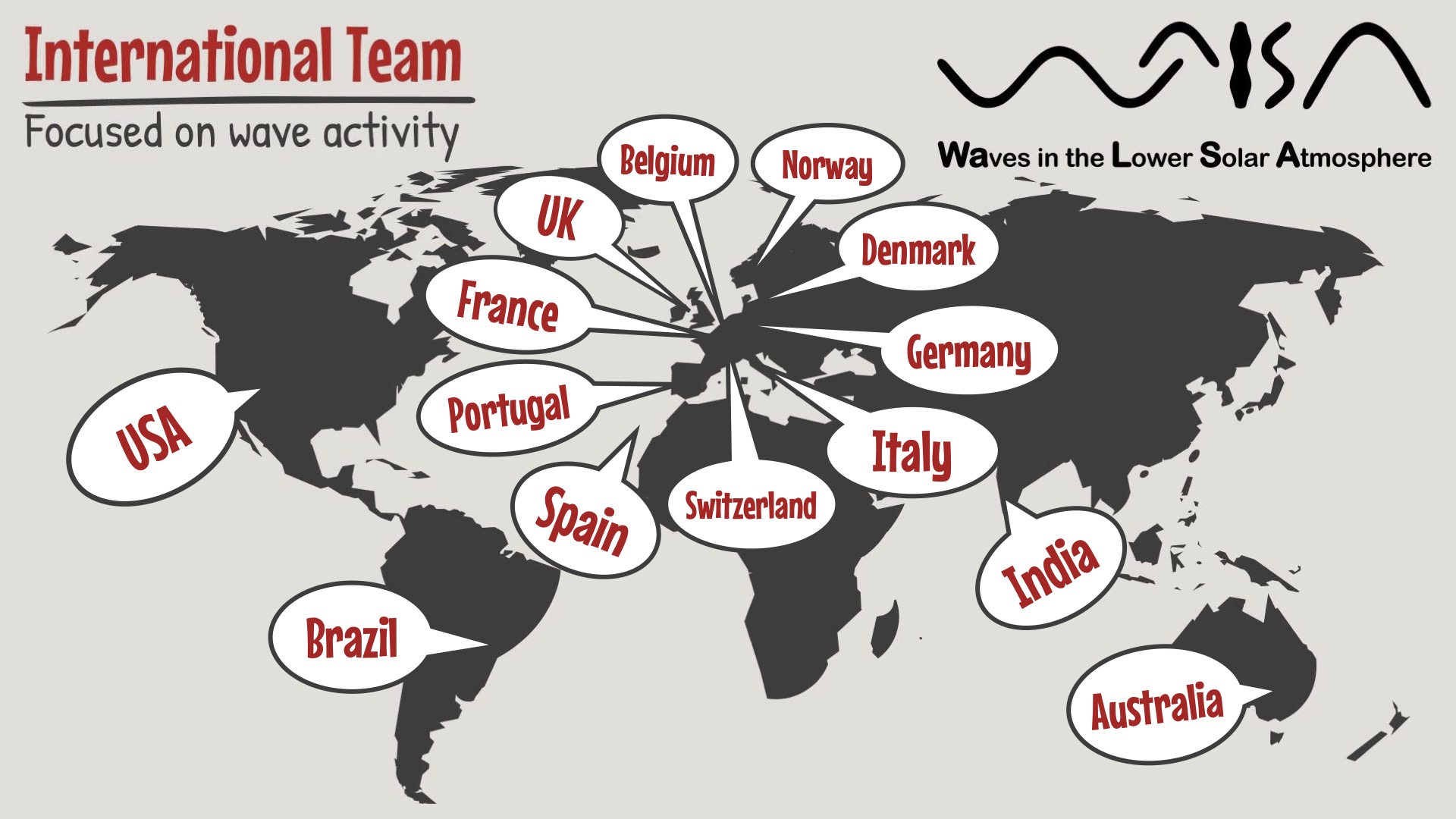

A focused international science team
on Waves in the Lower Solar Atmosphere

Exploring the enigma: why is the Sun’s outer atmosphere exceedingly hot? Our research focuses on oscillations, notably slow/fast magneto-acoustic and Alfvén waves, which are believed to play a crucial role in channeling significant amounts of energy into the solar chromosphere and corona.
While many studies have targeted the corona, we aim to fill a critical gap: understanding the intricate complexities of interpreting magnetohydrodynamic (MHD) wave phenomena in the lesser-studied solar photosphere and chromosphere.
At the forefront of our mission, the WaLSA Team delves into the multifaceted challenges of wave studies within the lower solar atmosphere, paving the way for groundbreaking discoveries.


The team members are worldwide leading experts in the field and have published hundereds of scientific articles linked to wave activity in the lower solar atmosphere.
Diverse expertise
Aligned objectives
Balanced disciplines
Complementary experience

Large scale coherent magnetohydrodynamic oscillations in a sunspot
Nature Communications, 2022, 13, 479Discovery of several wave modes (i.e., more than 30 eigenmodes) coexisting within a large sunspot from observations, supported by theoretical models.
A chromospheric resonance cavity in a sunspot mapped with seismology
Nature Astronomy, 2020, 4, 220Resonance cavity (the pink isocontours) observations above a sunspot, amplifying propagating magentic waves in the lower solar atmosphere.
Transverse oscillations in slender Ca II H fibrils observed with Sunrise/SuFI
Astrophysical Journal Supl. Ser., 2017, 229, 9Transverse-wave propagations in slender bright fibrils near a small solar active region, carrying a vast amount of energy in to the low solar chromosphere.
Photospheric observations of surface and body modes in solar magnetic pores
Astrophysical Journal, 2018, 857, 28Direct evidence of surface and body wave modes in numerous pores, implying how these modes transfer energy from the waveguide to the surrounding plasm.

The WaLSA Team interactively engages with the public about its activitiy and science. This hopefully creates opportunities for learning, developing new skills, gaining new insights or ideas, developing better research, raising aspiration, or being inspired.